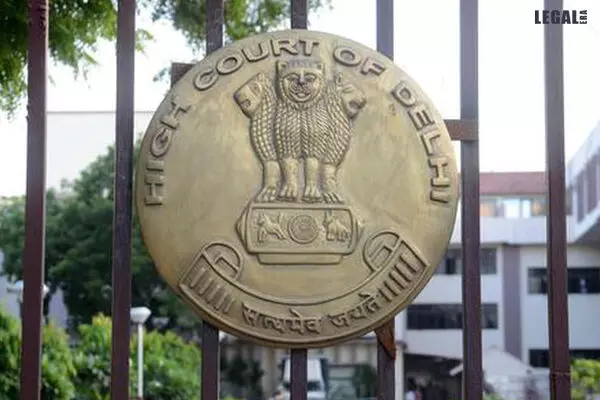- Home
- News
- Articles+
- Aerospace
- AI
- Agriculture
- Alternate Dispute Resolution
- Arbitration & Mediation
- Banking and Finance
- Bankruptcy
- Book Review
- Bribery & Corruption
- Commercial Litigation
- Competition Law
- Conference Reports
- Consumer Products
- Contract
- Corporate Governance
- Corporate Law
- Covid-19
- Cryptocurrency
- Cybersecurity
- Data Protection
- Defence
- Digital Economy
- E-commerce
- Employment Law
- Energy and Natural Resources
- Entertainment and Sports Law
- Environmental Law
- ESG
- FDI
- Food and Beverage
- Gaming
- Health Care
- IBC Diaries
- In Focus
- Inclusion & Diversity
- Insurance Law
- Intellectual Property
- International Law
- IP & Tech Era
- Know the Law
- Labour Laws
- Law & Policy and Regulation
- Litigation
- Litigation Funding
- Manufacturing
- Mergers & Acquisitions
- NFTs
- Privacy
- Private Equity
- Project Finance
- Real Estate
- Risk and Compliance
- Student Corner
- Take On Board
- Tax
- Technology Media and Telecom
- Tributes
- Viewpoint
- Zoom In
- Law Firms
- In-House
- Rankings
- E-Magazine
- Legal Era TV
- Events
- News
- Articles
- Aerospace
- AI
- Agriculture
- Alternate Dispute Resolution
- Arbitration & Mediation
- Banking and Finance
- Bankruptcy
- Book Review
- Bribery & Corruption
- Commercial Litigation
- Competition Law
- Conference Reports
- Consumer Products
- Contract
- Corporate Governance
- Corporate Law
- Covid-19
- Cryptocurrency
- Cybersecurity
- Data Protection
- Defence
- Digital Economy
- E-commerce
- Employment Law
- Energy and Natural Resources
- Entertainment and Sports Law
- Environmental Law
- ESG
- FDI
- Food and Beverage
- Gaming
- Health Care
- IBC Diaries
- In Focus
- Inclusion & Diversity
- Insurance Law
- Intellectual Property
- International Law
- IP & Tech Era
- Know the Law
- Labour Laws
- Law & Policy and Regulation
- Litigation
- Litigation Funding
- Manufacturing
- Mergers & Acquisitions
- NFTs
- Privacy
- Private Equity
- Project Finance
- Real Estate
- Risk and Compliance
- Student Corner
- Take On Board
- Tax
- Technology Media and Telecom
- Tributes
- Viewpoint
- Zoom In
- Law Firms
- In-House
- Rankings
- E-Magazine
- Legal Era TV
- Events
Delhi High Court orders plantation of 10,000 trees to utilize costs collected as fines imposed on defaulting litigants

Delhi High Court orders plantation of 10,000 trees to utilize costs collected as fines imposed on defaulting litigants
The move will provide immeasurable benefits to the public
The Delhi High Court has directed the authorities to use the costs imposed by it in “scores” of contempt and other cases, to plant 10,000 trees in the capital for the “larger public good.”
In the New India Assurance Co Ltd vs Himanshu Sharma & Ors case, Justice Najmi Waziri observed that due to the court’s imposition of penalties, its coffers contained Rs. 80 lakh deposited by the defaulting litigants.
The bench stated, “These monies are to be utilized for the larger public good. Plantation of trees is one such exercise, which the court would consider, because trees, for as long as they are alive, be it for decades or for centuries, would incessantly and silently provide multiple benefits to the city; provided however, that people and the landowning agencies do not interfere in or hinder their growth.”
The court further highlighted that such plantation drives would prove beneficial for future generations of Delhi residents.
“They would also serve as carbon sump, to absorb in some measure, the atmospheric pollution, which plagues the city all year round. Additionally, they would lend beauty and grace to the city and provide a soothing ambience to passers-by,” it added.
The court noted that subsequent to its 24 May order, over Rs.70 lakh had already been transferred to the bank account of the Deputy Conservator of Forests (DCF) of the Delhi government.
The trees would be planted with the assistance of government agencies, including DCF and the Public Works Department (PWD), in areas identified by the lawyers appearing for the respective parties and those assisting the court.
Justice Waziri stated, “They shall each plant at least 2,500 trees. They are hereby appointed as court commissioners and assistance apropos their transportation, etc., shall be arranged by the PWD/forest department/ Government of the National Capital Territory of Delhi. The local police shall assist the DCF and the court commissioners in the plantation exercise."
The forest department would also have to take into consideration the soil type and topography while planting varieties like Pilkhan, Papdi, Kachnaar, Goolar, Kala Siris/Safed Siris, Jamun, Amaltas, Kadamb and Badh.
The Judge directed the authorities stating, “Each tree shall have a minimum of three years’ nursery-age and a minimum trunk height of 10 feet. From the Rs.70 lakh, at least 10,000 trees shall be planted.”
The proof showing the plantation sites (before and after), and tree guards or fences, will have to be filed by the DCF and the court commissioners along with a compliance affidavit and photographs
The order also underlined that community participation in the plantation and maintenance of the trees should be encouraged. The authorities must also install signboards at prominent junctions to display that the plantations were carried out on the directions of the Delhi High Court.
The bench added, “In case of any attrition of the trees or any damage to the trees, the land-owning agency shall promptly remedy the situation with the advice of the tree officer and keep the court commissioners informed with photographs.”


